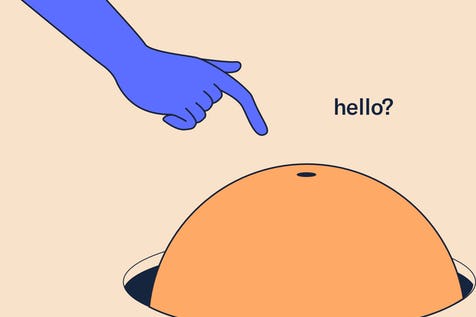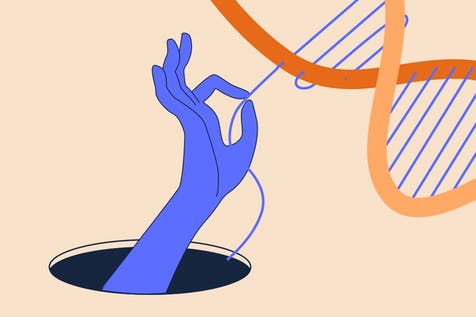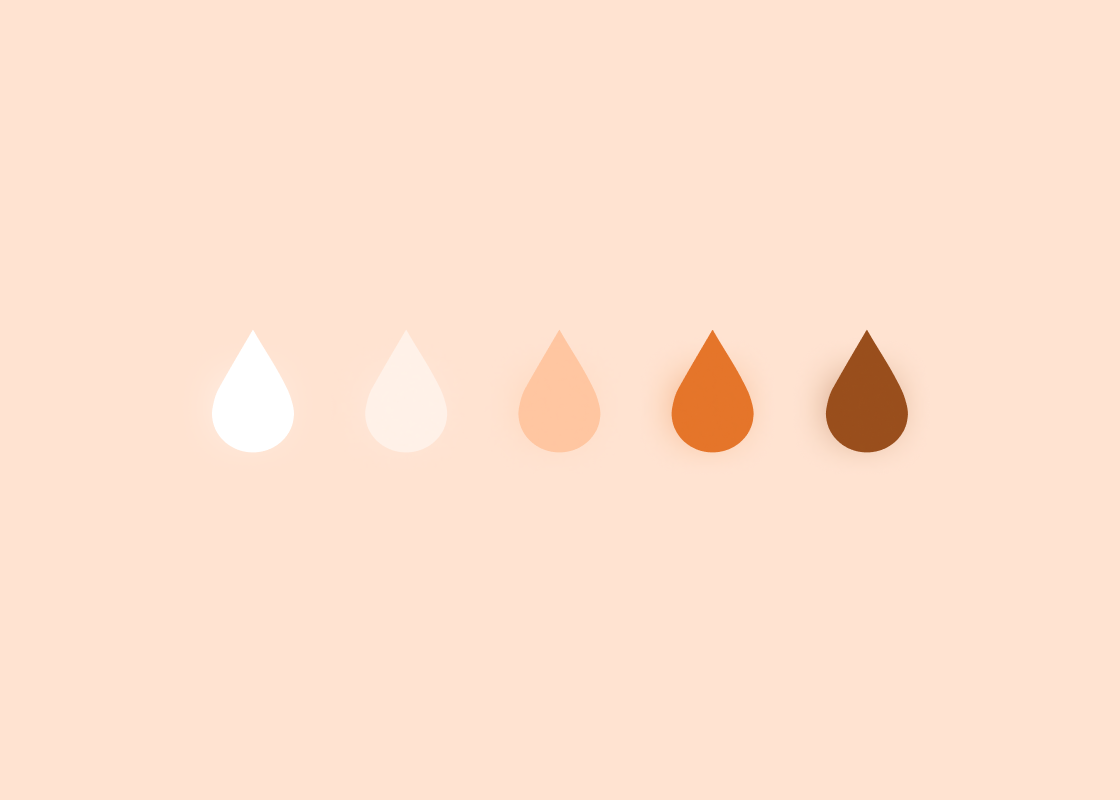Have you ever gone to get a worrying, nagging pain checked out by a doctor? In the best-case scenario, the doctor carefully listens to your concerns and delves deeper into the diagnosis. Eventually, the underlying cause is detected, and you’re given the right medications to tackle the pain and the condition causing it.
But what if your concerns are dismissed, and you’re told it's all in your mind? You’re led to believe that the pain is part of your imagination or that you just have “low pain tolerance.” Unfortunately, this is something many women have encountered throughout their lifetime.
A recently-published study demonstrated that pain reports by females are not taken as seriously as those reported by their male counterparts. This research amplifies the fact that the pain experienced by female patients is more often underestimated and undermined, leading to delayed detection of possibly life-threatening causes [1].
But that’s not the only struggle women may face when receiving medical care and attention. Women deal with many different issues in the healthcare system—from having their symptoms dismissed to getting their physical pain and ailments diagnosed as a psychological disorder without proper investigation.
In this article, we’ll explore how gender bias can affect the quality of medical care a person receives. We will also look into how you can identify medical gaslighting when seeking medical care. Finally, this article will cover advice on how you can handle such biases, ensuring you receive the proper medical care you need and deserve.
Why does Gender Bias Exist?
Gender bias refers to the tendency to favor one gender over the other. You may see it play out in different facets of life, including education, career, employment, sports, and healthcare. Or you may have even experienced it yourself.
The fact is, gender bias in healthcare has existed for centuries and outlived countless generations. The main cause of this comes from the lack of understanding that illness and diseases can manifest differently in women compared to men. Women may experience a different set of symptoms to one disease or may react differently to a drug. Failure to recognize that will dampen the quality of care and treatment they receive.
Gender Bias in Clinical Research
What further aggravates the situation is this—women aren’t included enough in clinical trials. In the past, women were commonly excluded from such trials. And it wasn’t until the 1990s that the National Institutes of Health (NIH) tried to correct this imbalance by issuing a guideline that made the inclusion of women a requirement for all trials funded by the NIH [2].
But even when women are included, there is an underrepresentation of women in many of these clinical trials. And when there are, in fact, enough female participants in the study, researchers sometimes fail to perform enough analysis to determine if gender can affect the results of the trial [3].
As a result of all these contributing factors, healthcare providers are less likely to understand how a disease may present differently in females compared to males. This could cause them to overlook, dismiss, or misdiagnose the symptoms a woman experiences.
On top of that, the difference in funding of clinical trials further adds fuel to the fire. In almost 75% of the cases where a disease mainly affects one gender, trial funding patterns tend to favor males over females. This means that conditions affecting more women are more likely to be underfunded, while diseases affecting more men are commonly overfunded [4].
Gender Bias in Healthcare
Gender bias can seep into healthcare settings as well. Research has shown that women are treated differently from their male counterparts for various physical diseases and conditions.
For instance, a 2019 study found that the diagnosis and management of heart-related conditions in women would improve significantly with the use of clinical test markers that are sex-specific. Despite these findings, many hospitals still use the same markers in men and women, which can increase the risk of heart conditions going undetected in women [5].
In addition to that, another research review conducted in 2019 also showed that women were, on average, diagnosed with the same disease at a later age compared to men. For the majority of health conditions, including skin diseases, eye diseases, conditions affecting the muscle and bones, and endocrine (hormone-related) disorders, women are generally diagnosed at a later age, leading to delayed treatment [6].
Research also suggests that gender biases may affect the care a person receives for critical illnesses. Among patients aged 50 and up, women are less likely to be sent to the ICU or receive suitable life-support treatment than men. Gender bias may not be the sole contributor to these findings, as patient preferences could play a role. But because critical illnesses can progress differently in men and women and both genders may respond differently to treatment, clinical trials should represent women adequately [7].
Unfortunately, gender bias has also sunk its teeth into reproductive healthcare. Many women have described their journey battling chronic pelvic pain as draining and frustrating, with the condition being under-researched and their pain often dismissed [8]. Eventually, some women discovered that conditions such as endometriosis, ovarian cysts, or cancer were the root of their pain.
On top of that, research has found that women who experience painful sex caused by endometriosis feel that they are not able to discuss this symptom with their healthcare provider. This could be due to embarrassment or having their pain and experiences dismissed when they try to discuss the issue [9].
These findings are devastating, but we’re working hard to be the pivot of healthy change. At inne, our goal is to redefine how reproductive health and women’s health issues are perceived, viewed, and handled in the community. We aim to give women’s health the weight and attention it needs and encourage women to take the reins and do what’s best for their health.
The first step towards positive change is awareness, and that’s something you can pioneer in your life and the lives of women around you. While it may be daunting, you can be your biggest advocate in all matters regarding your physical, mental, and sexual wellbeing.
How to Identify Medical Gaslighting
If you have a doctor or healthcare professional that tries their best to acknowledge your concerns and make you feel heard, be sure to show your appreciation for what they do. They’re the closest representation of a superhuman we’ll ever get to, and we can’t ever thank them enough.
But if you’re going, “Well, that’s the opposite of my experience,” you may have encountered some form of medical gaslighting before. Medical gaslighting refers to a medical professional downplaying or dismissing a patient’s concerns. Generally, women are more likely to experience this than men due to gender bias.
Some women have shared their experiences with medical gaslighting to raise awareness about the issue. One such case involves a mother whose concerns about her baby’s well-being were constantly dismissed as overprotectiveness. After she pushed again and again for more examinations, the doctors discovered three holes in her baby’s heart. Another case involves a teenage girl who visited her GP numerous times with the exact same symptoms, only to be diagnosed with a neurological disorder after one year.
It’s important to recognize what medical gaslighting can look like. Here are some signs of medical gaslighting:
- You feel belittled or silly for experiencing your symptoms.
- You are told that your physical discomfort or pain is due to a psychological issue without proper examination.
- The conversation is constantly redirected whenever you bring up your concerns.
- Your diagnosis (or lack of) is quickly assumed based on your gender or ethnicity.
- Your concerns are labelled as irrational, and your symptoms are identified as “normal” right off the bat.
- No further examination or tests are scheduled despite your recurring symptoms or concerns.
- Your memory of the event or perception of your symptoms is constantly questioned.
Sometimes, your healthcare provider may truly be worked to the bone. In a time-pressured setting, things can spiral out of their control. And they may not be able to dedicate as much time and attention to each patient as they’d like to. It’s crucial to understand that most healthcare professionals don’t do it intentionally, especially when they’re overworked.
Nonetheless, you may need to reevaluate your situation if you leave the doctor’s office every single time thinking, “Is it all really in my head?”
How to Deal with Gender Bias when Seeking Medical Care
When you’re experiencing pain, discomfort, or worrying symptoms, it’s perfectly normal to feel anxious and have your own share of concerns. And understandably, a visit to the doctor may take a lot of courage. So, here’s how you can make it count.
- Speak up and advocate for yourself. Don’t be afraid to push for more examinations and tests if you aren’t satisfied with the diagnosis.
- Trust what you hear. No one hears your body better than you. If your symptoms worsen or your concerns grow, get them reviewed again.
- Get a second or third opinion. It’s not okay to feel that all your concerns are swept under the rug. If you feel the pressing need to, seek advice from another healthcare professional.
- Reach for support. Emotional support goes a long way, whether it’s from a family member or a friend you trust. Your support system can encourage you to take the necessary steps to do what’s best for your health.
Final Takeaway: Gender Biases in Healthcare
Gender biases and gaslighting can also make you feel invalidated, belittled, and neglected. And we’re very sorry if you’ve had such experiences.
Because of this, inne strives to shed light on the issue of gender biases and empower women like you to make the best-informed decisions about their health. We work passionately to advocate for change and equip you with the resources, tools, and support you need to take charge of your own health.
On an important note, while women are more likely to face gender biases in healthcare, it’s also crucial to recognize that men aren’t immune to them, either. Here at inne, we stand firmly against any form of gender biases in healthcare. It’s simple—no matter your sex, your health counts and matters.
References
1. Zhang L, Losin EAR, Ashar YK, Koban L, Wager TD. Gender Biases in Estimation of Others' Pain. J Pain. 2021;22(9):1048-1059. doi:10.1016/j.jpain.2021.03.001
2. Hamberg K. Gender bias in medicine. Womens Health (Lond). 2008;4(3):237-243. doi:10.2217/17455057.4.3.237
3. Institute of Medicine (US) Committee on the Ethical and Legal Issues Relating to the Inclusion of Women in Clinical Studies, Mastroianni AC, Faden R, Federman D, eds. Women and Health Research: Ethical and Legal Issues of Including Women in Clinical Studies. Washington (DC): National Academies Press (US); 1999.
4. Mirin AA. Gender Disparity in the Funding of Diseases by the U.S. National Institutes of Health. J Womens Health (Larchmt). 2021;30(7):956-963. doi:10.1089/jwh.2020.8682
5. Lee KK, Ferry AV, Anand A, et al. Sex-Specific Thresholds of High-Sensitivity Troponin in Patients With Suspected Acute Coronary Syndrome. J Am Coll Cardiol. 2019;74(16):2032-2043. doi:10.1016/j.jacc.2019.07.082
6. Westergaard D, Moseley P, Sørup FKH, Baldi P, Brunak S. Population-wide analysis of differences in disease progression patterns in men and women. Nat Commun. 2019;10(1):666. Published 2019 Feb 8. doi:10.1038/s41467-019-08475-9
7. Fowler RA, Sabur N, Li P, et al. Sex-and age-based differences in the delivery and outcomes of critical care. CMAJ. 2007;177(12):1513-1519. doi:10.1503/cmaj.071112
8. Vincent K, Evans E. An update on the management of chronic pelvic pain in women. Anaesthesia. 2021;76 Suppl 4:96-107. doi:10.1111/anae.15421
9. Hudson N. The missed disease? Endometriosis as an example of 'undone science'. Reprod Biomed Soc Online. 2021;14:20-27. Published 2021 Aug 13. doi:10.1016/j.rbms.2021.07.003



.jpg)





